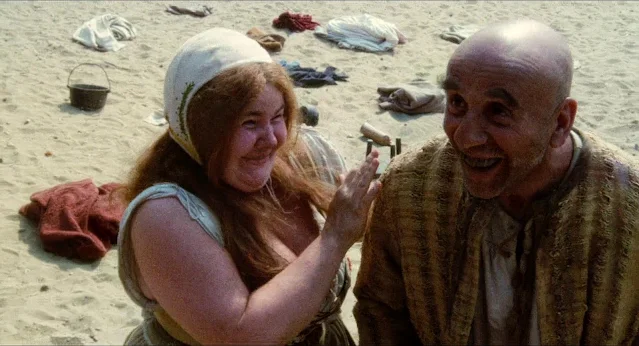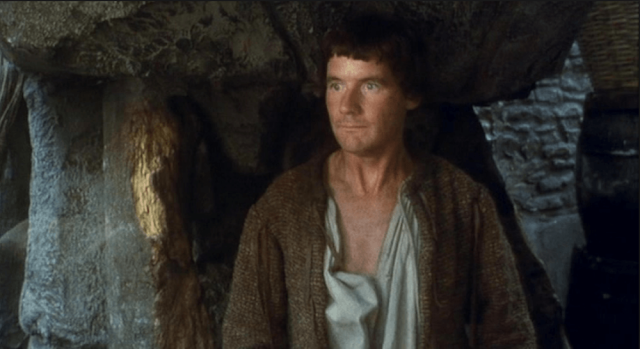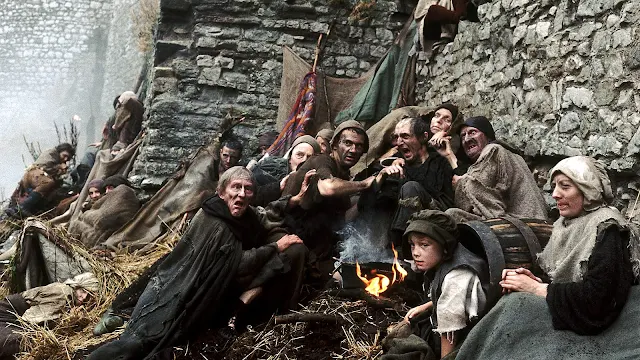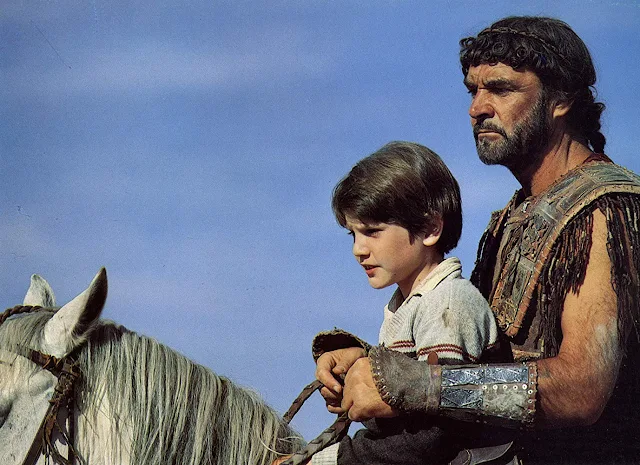 |
| Maggie Smith and Michael Palin in A Private Function |
Cast: Michael Palin, Maggie Smith, Denholm Elliott, Richard Griffiths, Tony Haygarth, John Northington, Bill Paterson, Liz Smith, Alison Steadman, Jim Carter, Pete Postlethwaite. Screenplay: Alan Bennett, Malcolm Mowbray. Cinematography: Tony Pierce-Roberts. Production design: Stuart Walker. Film editing: Barrie Vince. Music: John Du Prez.
A Private Function begins with Joyce Chilvers (Maggie Smith) and her mother (Liz Smith) entering a darkened movie theater where a newsreel is playing. We watch the newsreel, about meat rationing in postwar Britain, as the two women make their way to their seats, with Joyce scolding her mum for not finding a seat of her own. Then the lights come up and the theater organ rises from the pit. Joyce is playing the organ with her mother awkwardly sharing the bench with her. It's a nifty way to introduce not only two of the movie's key characters but also the era in which the film is set and the core of the plot. The newsreel also includes footage of the preparations for the wedding of Princess Elizabeth and Sir Philip Mountbatten, so we know that we're in November of 1947. The setting is a town in Northern England where the local dignitaries, led by the irascible, snobbish Dr. Swaby (Denholm Elliott, are preparing for a private function, a banquet, to celebrate the marriage of the future queen and prince consort. But how do you put on a banquet when everything, especially meat, is strictly rationed, and a diligent civil servant named Wormold (Bill Paterson) is enforcing the consumption laws with an iron hand? The banquet planners have found a way: They're raising an illegal pig. Eventually, Joyce and her meek chiropodist husband, Gilbert (Michael Palin), will get involved, especially after the would-be social climbing Joyce is not only frustrated by her inability to get around the rationing laws, but is also piqued by not being invited to the banquet. The only solution, it seems, is for Gilbert to commit pignapping and to hide the purloined swine in their home. The rest is farce in the manner of the British comedies made in the late 1940s and early 1950s, e.g., Kind Hearts and Coronets (Robert Hamer, 1949), The Lavender Hill Mob (Charles Crichton, 1951), and The Ladykillers (Alexander Mackendrick, 1955). It's raunchier and a good deal more scatalogical than those classic films, and it's sometimes edited a little choppily -- there are jump cuts where none are needed -- but it earns the comparison on the strength of fine comic performances by Maggie Smith, Palin, Elliott, and especially Liz Smith as the endearingly dotty Mother. ("She's 74," Joyce often interjects to excuse, explain, and even praise her parent's behavior.)















